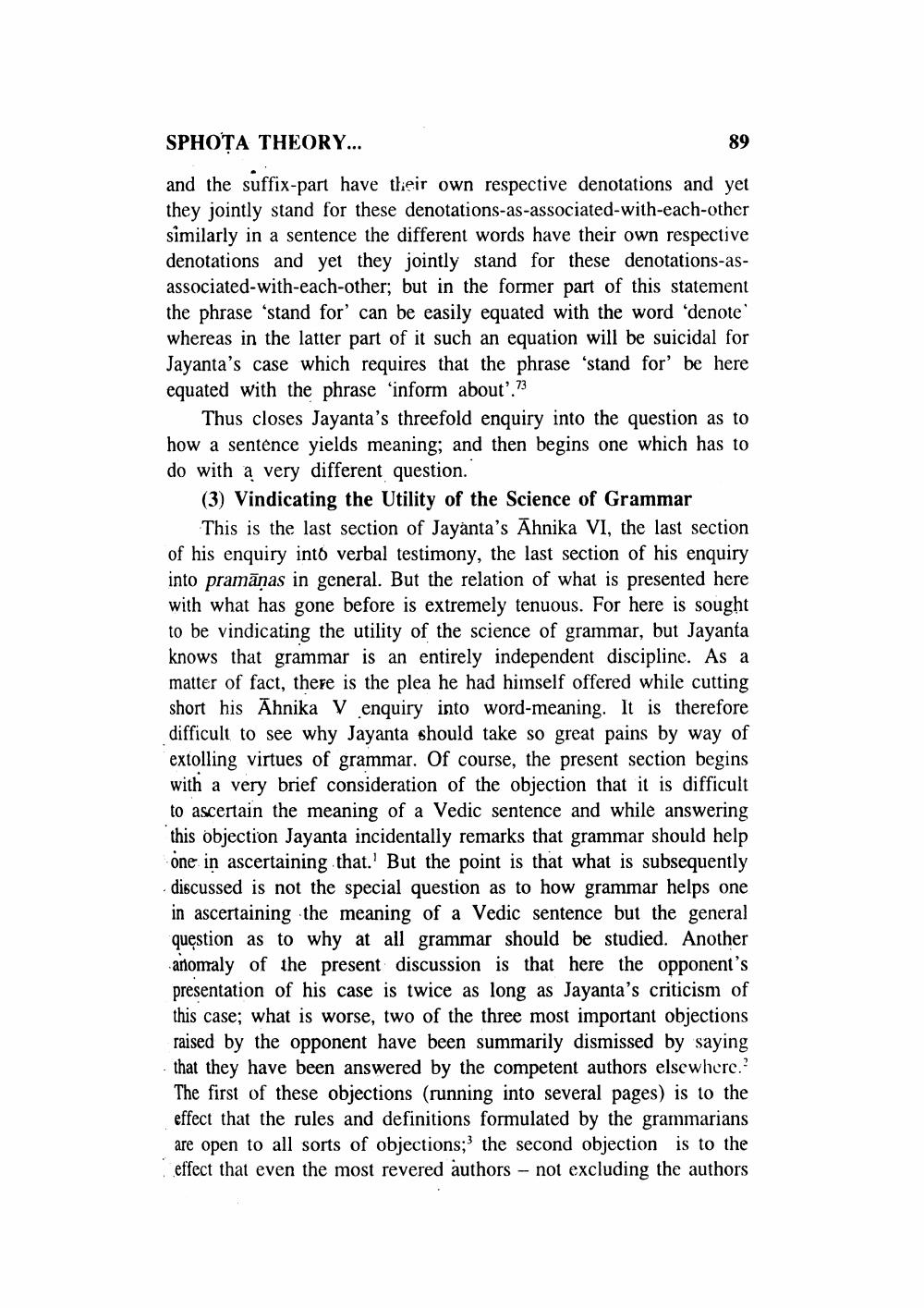________________
SPHOTA THEORY...
89
and the suffix-part have their own respective denotations and yet they jointly stand for these denotations-as-associated-with-each-other similarly in a sentence the different words have their own respective denotations and yet they jointly stand for these denotations-asassociated-with-each-other; but in the former part of this statement the phrase 'stand for' can be easily equated with the word 'denote whereas in the latter part of it such an equation will be suicidal for Jayanta's case which requires that the phrase 'stand for be here equated with the phrase inform about'."
Thus closes Jayanta's threefold enquiry into the question as to how a sentence yields meaning; and then begins one which has to do with a very different question.
(3) Vindicating the Utility of the Science of Grammar
This is the last section of Jayanta's Ahnika VI, the last section of his enquiry into verbal testimony, the last section of his enquiry into pramānas in general. But the relation of what is presented here. with what has gone before is extremely tenuous. For here is sought to be vindicating the utility of the science of grammar, but Jayanta knows that grammar is an entirely independent discipline. As a matter of fact, there is the plea he had himself offered while cutting short his Ähnika V enquiry into word-meaning. It is therefore difficult to see why Jayanta should take so great pains by way of extolling virtues of grammar. Of course, the present section begins with a very brief consideration of the objection that it is difficult to ascertain the meaning of a Vedic sentence and while answering this objection Jayanta incidentally remarks that grammar should help one in ascertaining that.' But the point is that what is subsequently discussed is not the special question as to how grammar helps one in ascertaining the meaning of a Vedic sentence but the general question as to why at all grammar should be studied. Another anomaly of the present discussion is that here the opponent's presentation of his case is twice as long as Jayanta's criticism of this case; what is worse, two of the three most important objections raised by the opponent have been summarily dismissed by saying that they have been answered by the competent authors elsewhere.? The first of these objections (running into several pages) is to the effect that the rules and definitions formulated by the grammarians are open to all sorts of objections; the second objection is to the effect that even the most revered authors not excluding the authors
-




